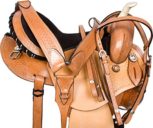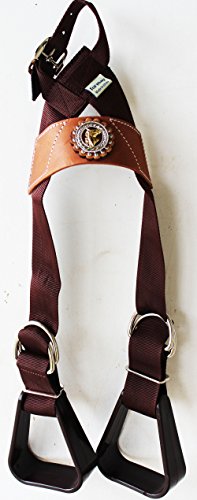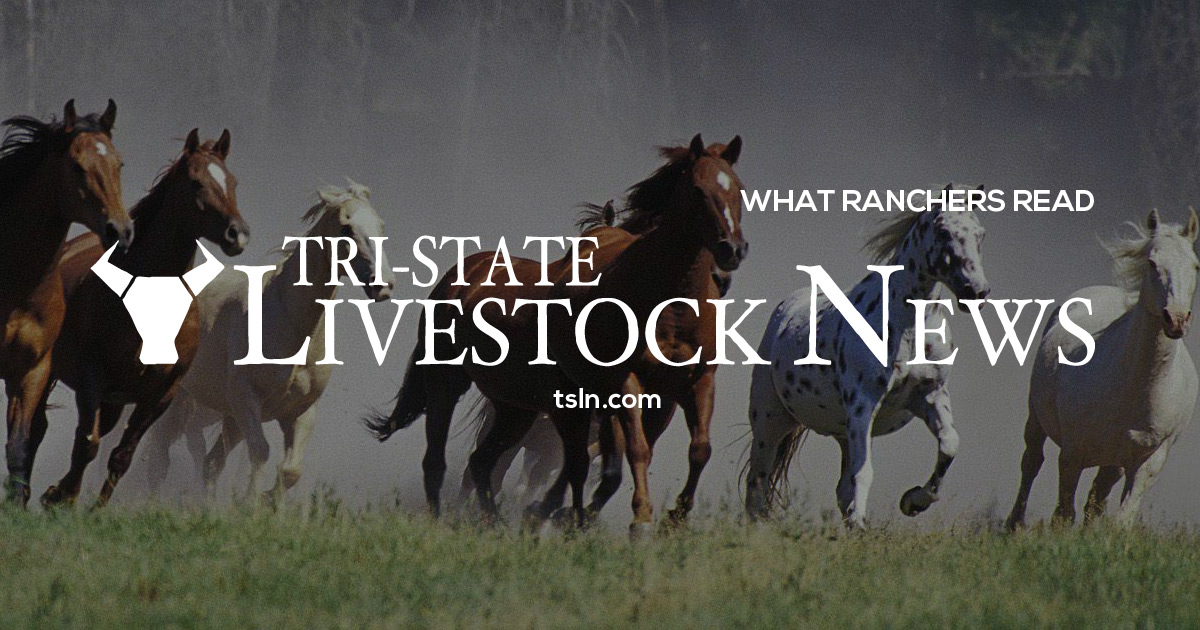JOHN E. POWELL (Mr. 4-H Rodeo) – Tri-State Livestock News
[ad_1] 4-H stands for Head, Heart, Hands, and Health. If “Help” was added to those four titles, it would certainly represent one man, John E. Powell, a county extension agent, who spent much of his adult life organizing, developing and helping preserve the South Dakota 4-H rodeo program that is literally the envy of every
[ad_1]
4-H stands for Head, Heart, Hands, and Health. If “Help” was added to those four titles, it would certainly represent one man, John E. Powell, a county extension agent, who spent much of his adult life organizing, developing and helping preserve the South Dakota 4-H rodeo program that is literally the envy of every other state. Of course, John did not accomplish this single-handedly, but his knowledge and perseverance helped pave the way for its continued growth and popularity.
John was savvy enough to engage two friends who had a similar vision for forming a rodeo organization for the 4-H kids in South Dakota, namely Les Crago and Willie Cowan. But it was Powell’s knowledge of the state extension service, the political agency that administers the 4-H, that paved the way.
In 1958, John Powell, an avid horseman and rodeo enthusiast, was the extension agent for Ziebach County. He not only was a charter member of the Western South Dakota Buckaroos, but had a great interest in the rodeo arena and his vocation was with the extension service, so it was only natural that he became interested in the possibility of a 4-H rodeo program in South Dakota.
And John was qualified. With a rich heritage of ranching, horsemanship and rodeo in South Dakota, John, the oldest child of John Henry and Lola (Payne) Powell, was born on August 30, 1924 at Rapid City. His early childhood was spent in Philip and Fairburn, and it was while living at Fairburn that five-year-old John received his first horse, saddle, boots and chaps. Although his school days found him in town, John’s summers were spent working on ranches and farms in Rapid Valley and the Cheyenne Indian Reservation with his father. Growing up during the Great Depression and working alongside good horsemen and cowboys gave Powell a desire for learning and sharing knowledge of new and improved methods of agriculture, thus he was a perfect fit to become an extension educator.
In June of 1943, John Powell was drafted into the Army during his senior year of high school. He was sent overseas in February, 1944; and was attached to the 20th Air Force, returning to the United States after a twenty-five month trip around the world, after which he worked on the Angostura Dam project and later worked for a cattle company in the Nebraska Sandhills, where his work was devoted to his favorite things…cattle and horses.
It was in June of 1948 when John married Margaret Gallagher of Hot Springs, and with the help of the G.I. Bill, the young couple moved to Ft. Collins, Colorado where John attended Colorado State University, graduating in 1952 with a degree in Animal Science. After graduation, they moved to Sturgis where John was employed by the Soil Conservation Service. Following training with the SCS, he was appointed as Work Unit Conservationist for Ziebach County, based out of Dupree, and it was there where John was appointed to a committee for the development of the South Dakota 4-H Horse Project, a project near and dear to Powell.
With the cooperation and assistance of area 4-H leaders, parents, ranchers, and the 4-H boys and girls, and the sponsorship by the Mud Butte 4-H Club, the 4-H rodeo activity had its beginning at the Faith Stock Show Arena on July 24, 1960. Leaders and 4-H club members were invited from every county in the State of South Dakota to this first rodeo, and nearly every county was represented at what was deemed a huge success. Stock and personnel was all donated and the many attendees were encouraged to help John Powell follow his dream of developing the 4-H rodeo activity throughout the state.
During the next few years, 4-H rodeos were held in different counties in central and western South Dakota as interest continued to increase, and it soon became apparent that rodeo should become a part of the state 4-H program. Because of John Powell’s vocation as well as his passion for the inclusion of rodeo in the program, he and Roger Moul, the Harding County Extension Agent, met with the state 4-H advisory Board in September of l971, where they presented their case in favor of having rodeo become included as a certified 4-H activity. The reaction of the State Board was favorable with some reservations on the part of the administration being centered on the question of rodeo having any educational value. In October, Powell met with the Director of Extension at the Western Calf Show and they discussed the educational merit of rodeo events, and as a result, roping events were incorporated into the horse project. Showing progress as the inclusion of roping events added to the horse project and its popularity at the 1971 State 4-H Horse Show, the idea of a State 4-H Finals Rodeo was gaining momentum. As chairman of the 4-H Horse Project, Powell mailed notices throughout the state informing county rodeo groups that a State 4-H Finals Rodeo organization meeting would be held in Philip on April 10, 1972. Representatives of the eleven counties that held rodeos in 1971 attended, including Willie Cowan of Pierre; Melvin Pederson of Winner; Fred Menzel, Dupree; Bill Abbott, Valentine, Nebraska; Gerald Weischedel, Onida; Evelyn Erickson, Gettysburg; Marilyn Painter, Ladner; Charles Clark, Keldron; Buzz Reeves, Eagle Butte; and Les Crago, Belle Fourche; plus a number of interested people from other counties.
Because of John E. Powell’s perseverance, and with the help of many folks with a like interest, the first annual South Dakota 4-H championship rodeo was held at the Stanley County Fairgrounds in Ft. Pierre, in 1972 and has continued to grow and be successful each year since that day. Incidentally, Powell is quick to acknowledge that a big part of the success of this program has been through the hard work and dedication by Willie and Loretta Cowan of Pierre, as well as many other individuals who have contributed so much to its progress.
Nationally, the 4-H program in general began around the start of the 20th century through concern about the positive growth of young people. The seed of the 4-H idea of practical and “hands-on” learning came from the desire to make public school education more connected to country life. As a result, the birth of the 4-H program in the United States was formed with congress created the Cooperative Extension Service in the USDA in 1914, which included boys’ and girls’ club work, which soon became known as 4-H clubs, “head, heart, hands and health.” Although horsemanship and horse activities were not included in the early years of 4-H, it soon became one of the most important and popular activities of 4-H.
Through 4-H rodeo, young folks not only learn horsemanship skills, but life skills important to helping them become contributing, productive members of society, and today, after more than 100 years, 4-H offers opportunities in communications, leadership, career development, livestock and home improvement, and computer technology. Because of its founder, John E. Powell, the experiences gained in the 4-H Rodeo Program in South Dakota, during the past fifty years had been invaluable to hundreds, if not thousands, of young folks in South Dakota. Not just the many cowboys and cowgirls that have achieved great triumphs in the rodeo arena, but many who found success in business and agriculture, are quick to credit the South Dakota 4-H Rodeo Program as being the foundation for their achievements.
John was recently honored at the 2019 South Dakota Rodeo Finals as one of the 2910 Distinguished South Dakota 4-H Rodeo Volunteers, and also, Governor Noem proclaimed August 18, 2019, at “John Powell Day” in South Dakota. An official proclamation was presented to John. The Black Hills Stock Show will also honor Mr. Powell by presenting the Silver Spur Hall of Fame award to him during their upcoming 2020 event. Also, the 2021 South Dakota 4-H Rodeo Finals will celebrate their 50th anniversary event thanks to John E. Powell.
Let’s block ads! (Why?)
[ad_2]
Source link








Comments
Comments are disabled for this post.